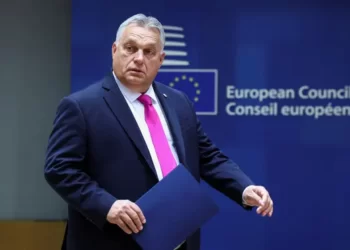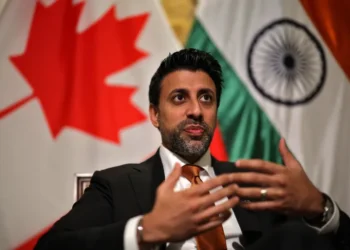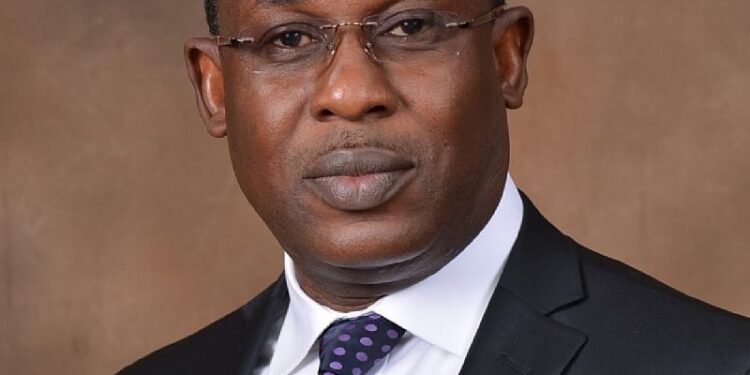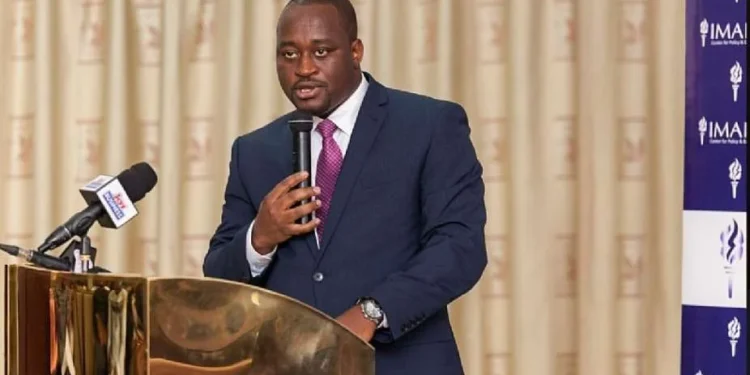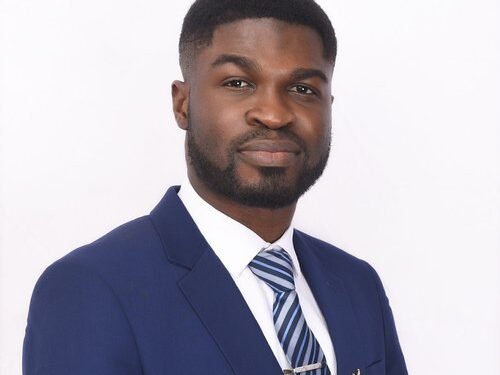The EU and Japan have pledged to bolster trade and defence ties.
The commitments were outlined in a joint statement following a summit in Tokyo between Japanese Prime Minister Shigeru Ishiba, European Council President Antonio Costa and European Commission President Ursula von der Leyen.
The two sides pledged to deepen their ties on trade and defence, citing their commitment to “a stable and predictable rules-based free and fair economic order.”
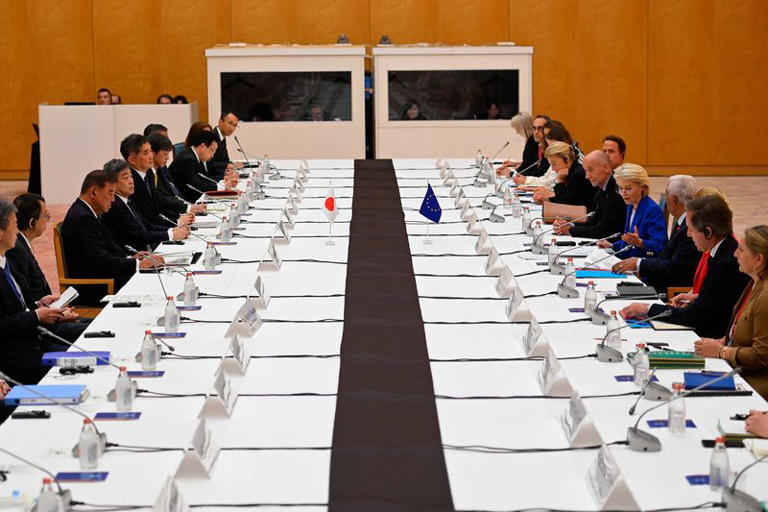
Von der Leyen said that the EU and Japan would seek to strengthen economic security.
“We will also work more closely together to counter economic coercion and to address unfair trade practices…We believe in global competitiveness and it should benefit everyone.”
Ursula von der Leyen
No names mentioned, but the EU has a long list of complaints about China and is currently embroiled in difficult trade talks with Donald Trump’s White House.
Facing a swirl of speculation over his future following a weekend election debacle, Ishiba iterated that the EU and Japan concurred to work together to strengthen a “stable and predictable rules-based free and fair economic order.”
Von der Leyen also congratulated Ishiba for negotiating a tariffs agreement with the US, but did not comment on the EU’s own negotiations with Washington. The EU is currently struggling to conclude a trade deal with the United States.
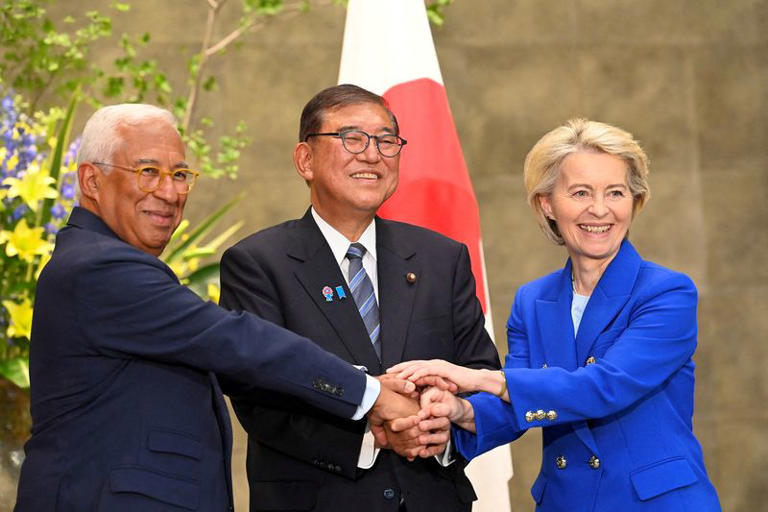
Europe and Japan, she said, accounted for one-fifth of global GDP, with a market of 600 million people.
“So, we have the scale to shape global rules on trade and tech in line with our values of fairness and openness.”
Ursula von der Leyen
Trade had increased by 20%, she said, since the entry into force of the EU-Japan trade agreement in 2019, but said more needed to be done to “unlock the full potential” of the deal, in areas such as government procurement and food and animal health standards.
Also, she said that the EU and Japan hoped to conclude this year negotiations to bring the Asian nation into the bloc’s Horizon research funding programme.
The two sides also agreed tighter cooperation on defence and security, including maritime, cyber, space and countering hybrid threats. Japan was the first country outside Europe to sign a defence and security pact with the EU.
They pledged to enhance cooperation on “increasing supply chain resilience and reducing strategic dependencies, including strengthening and diversifying critical minerals supply chains,” and to counter “economic coercion and non-market policies and practices.”
The tone was reminiscent of the EU’s recent summits with Canada and the UK, a moment to shore up alliances with predictable friends in a turbulent world.
On the climate crisis, which they described as “an existential threat,” the statement reaffirmed support for the Paris Agreement and called for “a global, just and inclusive green transition.”
Both sides expressed “serious concern” over regional tensions in the East China Sea and South China Sea, rejecting “any unilateral attempts to change the status quo by force or coercion.”
They also reiterated “resolute condemnation of Russia’s war of aggression against Ukraine, which constitutes a manifest violation of international law, in particular the UN Charter.”
EU-China Summit Slated For Tomorrow
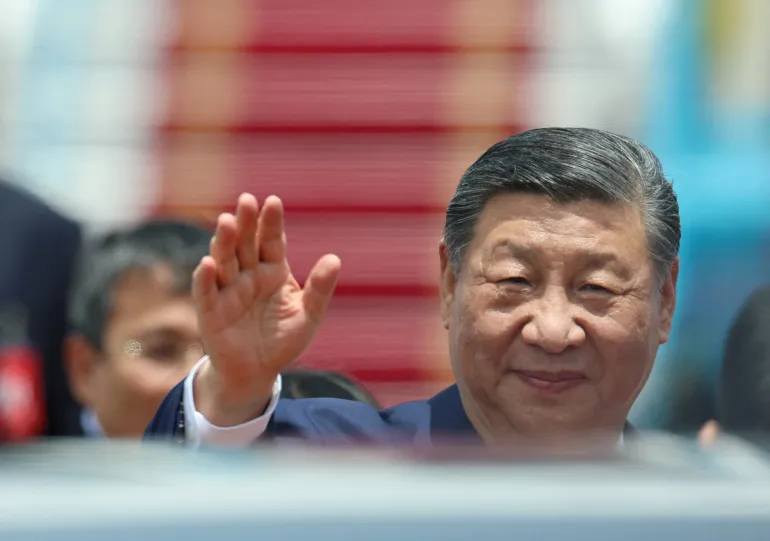
The EU-China summit is scheduled for tomorrow, Thursday, July 24, 2025.
On Thursday, von der Leyen and Costa are due in Beijing to meet President Xi Jinping for what is set to be a much frostier encounter.
Beijing and Brussels will mark the 50th anniversary of their establishment of diplomatic ties.
However, differences over state subsidies, market access and China’s support for Russia are set to overshadow the event.
Media reports quoting European officials say that tangible results of the EU-Japan summit are expected to contrast sharply with the limited hopes for any deliverables in the bloc’s meetings with Chinese leader Xi Jinping and Premier Li Qiang on Thursday in Beijing, where even a joint statement is not expected,
Ties between the EU and China have deteriorated since the COVID-19 pandemic, with European complaints focused on Beijing’s “unfair” trade practices and its support for Moscow.
READ ALSO: Power Sector Crisis Demands Transparency, Not Just Privatization – Energy Specialist





